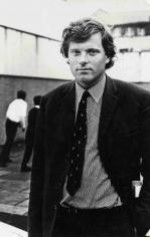By Staff Reporter
Novelist, poet, and educationalist Jonty Driver died at the age of 83 in Bristol, England on 21 May. Charles Jonathan ‘Jonty’ Driver was born in Cape Town in 1939 and attended St. Andrews College in Makhanda (where his father served as chaplain). His sister, Dorothy Driver, JM Coetzee’s partner, worked at the then National English Literary Museum (Amazwi’s former name), with their mother working at Rhodes University.
Driver attended the University of Cape Town (UCT) obtaining a BA (Hons) and Secondary Teacher’s Diploma. He was also a student activist, and President of the National Union of South African Students (NUSAS) serving two terms in 1963-1964. In 1964, he was detained without trial by the Security Branch under its 90-day law for his political activities. Upon his release, he left South Africa for Britain to study at Trinity College, Oxford but while he was there, the Apartheid regime refused to renew his passport and he became stateless for several years, eventually becoming a British citizen.
Driver then taught at schools in Britain and Hong Kong for several decades, later serving as headmaster
at some of these schools. In 2000 he retired from Wellington College, having served 11 years as headmaster. In 2007 he was appointed as an honorary Senior lecturer in Creative Writing at the University of East Anglia.

For more than twenty years, Driver was prohibited from returning to South Africa, only being permitted back in the country in 1991. Many of his works were banned by the Apartheid government and Driver had to release them again in 1994, after Apartheid was defeated.
In “The Man With the Suitcase”, Driver chronicled the life, execution, and rehabilitation of John Harris, an anti-apartheid activist who planted a bomb in July 1964 on a platform at Johannesburg’s Park Station, which exploded, killing one person and injuring 23 others. Harris was hanged by the Apartheid regime in 1965.
His other non-fiction works include three biographies: Patrick Duncan: South African and Pan-African (1980), Robert Birley, Mainly in South Africa (2022) and two books of memoirs: My Brother & I (2013) and Some Schools (2016).
Driver published five novels: Elegy for a Revolutionary (1969), Send War In Our Time, O Lord (1970), Death of Fathers (1972), A Messiah of the Last Days (1974), and Shades of Darkness (2004).
Driver’s poems have appeared in several journals in South Africa and Britain. Thirteen poems appeared in a volume of poems selected by Cosmo Pieterse, 7 South African Poets: Poems of Exile (1971).
Although Driver spent several decades living abroad in England, his early life in South Africa always remained a key focus in his writing and he was an active participant and supportive presence in the local literary community. He will live on in his written works and the memories of family and friends.
(This is an edited version of an article supplied by the Amazwi South African Museum of Literature).


